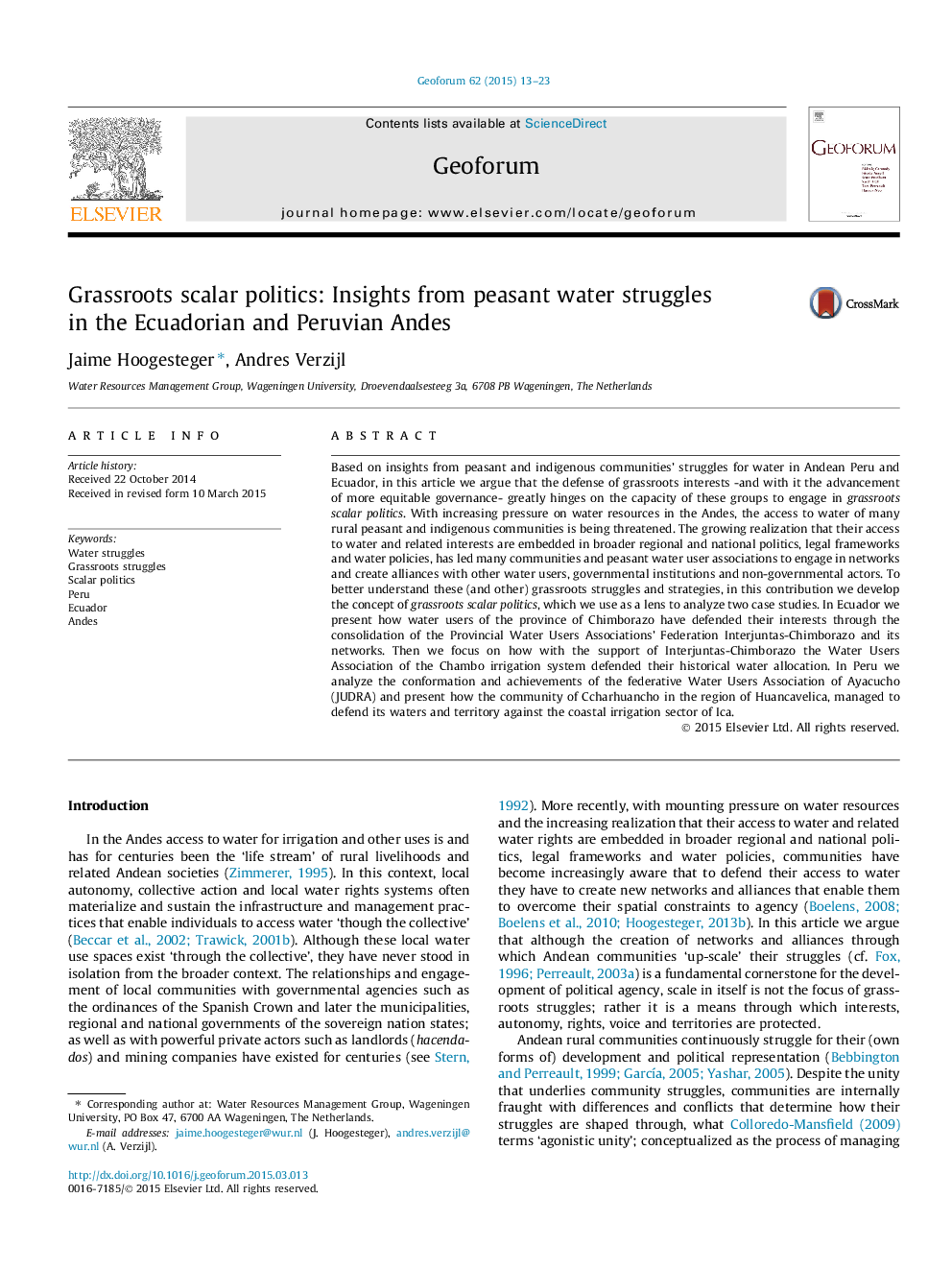| Article ID | Journal | Published Year | Pages | File Type |
|---|---|---|---|---|
| 5073566 | Geoforum | 2015 | 11 Pages |
Abstract
Based on insights from peasant and indigenous communities' struggles for water in Andean Peru and Ecuador, in this article we argue that the defense of grassroots interests -and with it the advancement of more equitable governance- greatly hinges on the capacity of these groups to engage in grassroots scalar politics. With increasing pressure on water resources in the Andes, the access to water of many rural peasant and indigenous communities is being threatened. The growing realization that their access to water and related interests are embedded in broader regional and national politics, legal frameworks and water policies, has led many communities and peasant water user associations to engage in networks and create alliances with other water users, governmental institutions and non-governmental actors. To better understand these (and other) grassroots struggles and strategies, in this contribution we develop the concept of grassroots scalar politics, which we use as a lens to analyze two case studies. In Ecuador we present how water users of the province of Chimborazo have defended their interests through the consolidation of the Provincial Water Users Associations' Federation Interjuntas-Chimborazo and its networks. Then we focus on how with the support of Interjuntas-Chimborazo the Water Users Association of the Chambo irrigation system defended their historical water allocation. In Peru we analyze the conformation and achievements of the federative Water Users Association of Ayacucho (JUDRA) and present how the community of Ccharhuancho in the region of Huancavelica, managed to defend its waters and territory against the coastal irrigation sector of Ica.
Keywords
Related Topics
Social Sciences and Humanities
Economics, Econometrics and Finance
Economics and Econometrics
Authors
Jaime Hoogesteger, Andres Verzijl,
